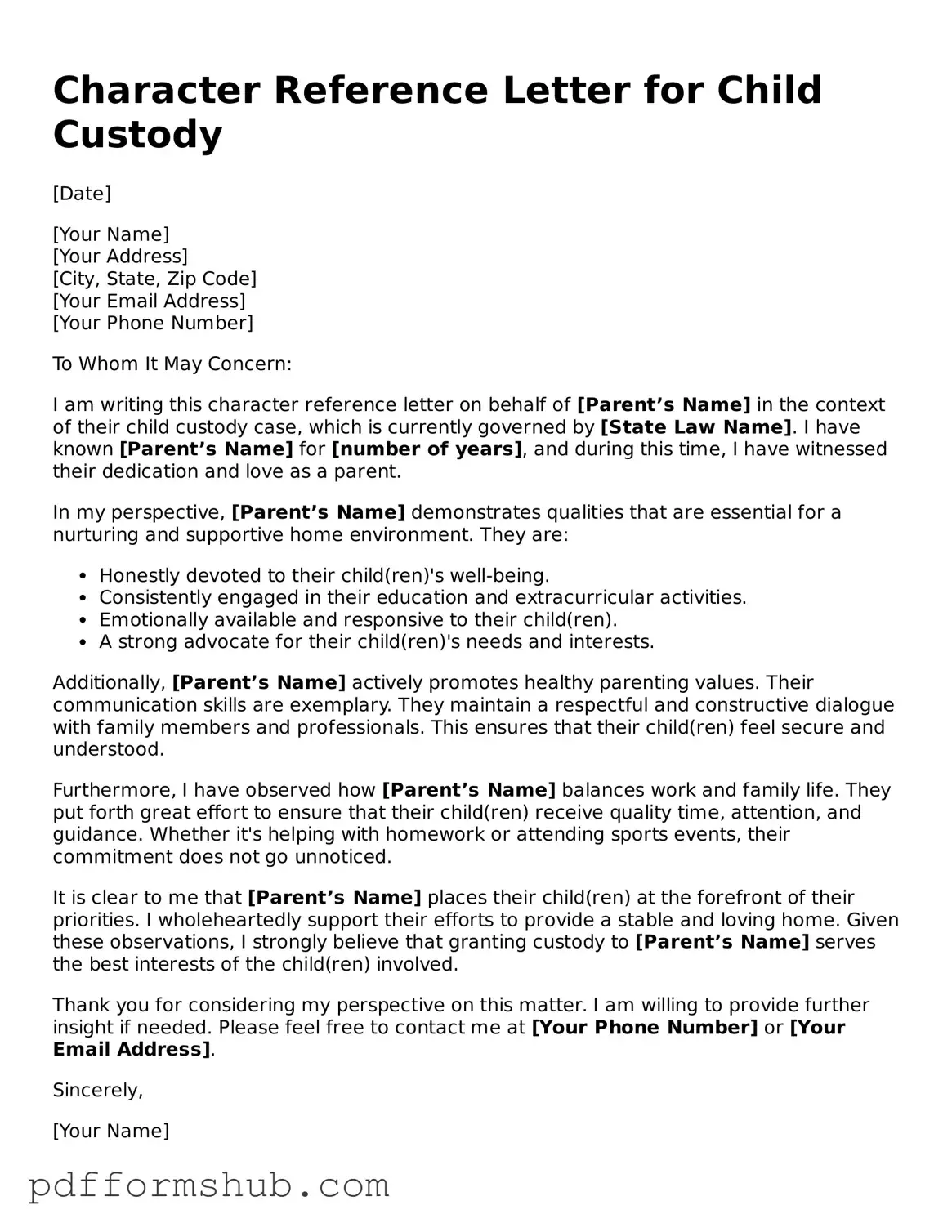Valid Character Reference Letter for Child Custody Form
The Character Reference Letter for Child Custody form serves as a crucial document in family law proceedings, providing insight into a parent's character and suitability for custody arrangements. This letter, typically written by friends, family, or colleagues, can significantly influence a court's decision regarding the best interests of the child. To ensure your voice is heard, consider filling out the form by clicking the button below.
Customize Form

Valid Character Reference Letter for Child Custody Form
Customize Form

Customize Form
or
Free PDF Form
Short deadline? Complete this form now
Complete Character Reference Letter for Child Custody online without printing hassles.